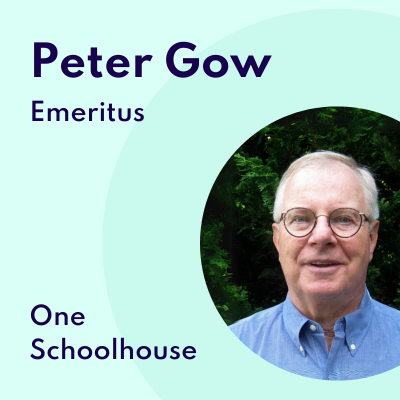Have humanities teachers misguidedly envied math teachers, who supposedly can reduce learning to right or wrong answers, even when students’ computation is also evaluated? Has everyone envied teachers in the arts, who have customarily been relieved of assigning final written examinations, although some may be called upon to proctor under special circumstances?
Has anyone in the history of education ever really enjoyed sit-down final examinations, except for the contemplation of the giddy elation that comes when they’re all over (including, for teachers, turning in grades)? While there is little doubt that cumulative assessments are useful tools in the learning process, there is doubt about the value of making students sit for a few hours in silence and relative isolation as they spew out “learning,” or of making teachers reduce an entire curriculum to a set of questions to be answered—in writing, and in silence and isolation. We ballyhoo the virtues of active learning, but is the dead quiet room of ordered desks and gimlet-eyed proctors minding a room of ordered desks a very active place? Or a joyful one, in any way? Think of the ominous language around such exercises. “Exam security” must be tight and invigilators stern, lest there be “cheating.” Students who don’t “cram” hard enough may “flunk,” or even “flunk for the year.” In high school I had to “pledge my honor as a gentleman,” in writing, that I hadn’t cheated on each exam. Fun? Thirty years ago our late friend Grant Wiggins taught us about “authentic assessment”—assessment that actually relates to and that may (should? Yeah!) incorporate and model actual work done in the field and address “real world” issues to which students might relate as members of the human community. Problem-solving and “design thinking” have proven to be pretty engaging, and asking students to explain and advocate for perspectives and solutions to hypothetical audiences invites critical and analytical thinking as it builds communication skills. Yes, there is a place for fact-based learning, and knowing some historical dates, scientific formulas and definitions, and the multiplication tables is useful even in a world of calculators and search engines. Oh, and of artificial intelligence, because students need to have enough actual knowledge to catch Bard or ChatGPT in fallacy or error. This kind of factual, even rote, learning can easily be built into the mastery of disciplinary content and skills as it undergirds complexity and nuance. Check out Bloom’s taxonomy and take the short routes to the lower levels of knowledge—but give students opportunities to contextualize these lower levels as they scale the heights. We remember Edmund Hillary not because he could tie his boot laces but because he shared in the first ascent of Mount Everest with his Sherpa guide and high-altitude climbing expert, Tenzing Norgay—but he needed that basic skill in order to reach the top of the mountain. You may know people who can recite every line and lyric of their favorite musical, but that doesn’t make them Audra McDonald. There is always that argument for giving sit-down final examinations that begins, “But in college they’ll have to….” That’s as may be, but I invite readers, as college breaks begin and recent graduates return to the halls of your school to say hello, to inquire about this. You may find, whatever your discipline, that presentations, projects—group and solo—and papers may be more prevalent than you thought. Some giant “intro” lecture courses may yet feature traditional examinations, but take-homes and other forms of cumulative exercises have dialed down the old stress fests of “exam weeks” on college campuses. My own queries have borne interesting fruit. “Our final skits and videos [as students] were a better language activity” than the sit-down finals one young language professor had to give as a teaching assistant in an introductory university language class. “I would say,” they add, “high school exams were not significant preparation for my undergraduate career, overall. Certainly for English and history it would have been way better prep to have a final essay” rather than an examination. A young teacher’s recent undergraduate experience entailed “I’d estimate, one [sit-down examination] per semester on average,” noting that instead of bluebooks, their wealthy university’s “proprietary books were white.” Growing and showing great merit—and aligning with educator rhetoric about the value of collaborative learning—is the use of group projects, presentations, and performances as final, cumulative exercises. Collaborative authentic assessment that fits perfectly with Bloom can be as rigorous as any 3-hour sit-down as a powerful demonstration of the skills and understandings and not just the “knowledge” that are part of a well-designed course’s comprehensive learning goals. Thoughtful design can ensure that work and learning loads are equitably distributed. (And as noted earlier, “first” ascents of great mountains are just about always collaborative enterprises.) And let us acknowledge, finally, that the whole concept of graded, sometimes competitive, paper-and-pencil examinations is rooted in cultures where mastery of factual, procedural, legalistic, predominantly verbal knowledge is a key status marker. Around the rest of the world and for millennia, DOING things—often with peers—has been more valuable to individuals and their communities than “book learning.” Authentic, active, and collaborative final assessments make more and more sense as the world’s complexity becomes more apparent and urgent to rising generations. And just because “they have to [do something] in college” doesn’t justify denying students opportunities to explore and analyze more deeply and to create and advocate more vigorously and often—and in concert with others. Let’s consign the bluebooks to the back of the closet—or recycle them, for a better world.
0 Comments
Leave a Reply. |
Don't miss our weekly blog posts by joining our newsletter mailing list below:AuthorsBrad Rathgeber (he/him/his) Archives
July 2024
Categories |


 RSS Feed
RSS Feed